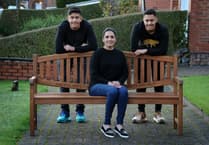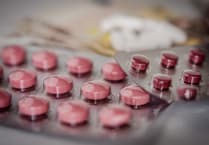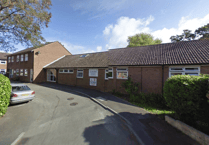DHI are a charity helping to turn lives around in Bristol, South Gloucestershire and Bath and North East Somerset. They run services to help disadvantaged people turn their lives around with drug and alcohol treatment, advice and support and social prescribing.
DHI also encourage the wider public to be aware of what a drug overdose looks like, and how they can be prevented or reversed.
Naloxone is a medicine that temporarily reverses an opioid overdose. This means it can reverse an overdose of street drugs like heroin, prescription drugs such as fentanyl or morphine, or codeine, which can be purchased over-the-counter.
Dave Smith runs training groups on Naloxone in Midsomer Norton, and is pleased to be offering information on the life-saving drug to members of the public. “It’s not a replacement for medical assistance, but it buys more time for ambulance crews to arrive if necessary.”
“Though it won’t work on any drugs other than opioids, it’s very safe to use if you’re in a situation where you’re not sure what’s happened, you can administer Naloxone even in those circumstances and it won’t have any negative effects”.
DHI provide Naloxone to anyone who comes into contact with opiate users. The kits are free, and intramuscular kits can be used up to five times before needing to be replaced. They come in both intranasal and intramuscular forms, meaning that the drug can be injected or administered nasally.
Naloxone works by blocking the opioids which are bound to receptors in the brain. It doesn’t flush opiates out of the person’s system, and only works for up to twenty minutes. If the opiate hasn’t flushed out of the system enough, the person could fall back into an overdosed state. Naloxone can be administered more than once in these situations. David recommends monitoring the situation for two to four hours afterwards to ensure the persons’ safety.
Training is provided twice a month across Bath and North East Somerset; once in Bath on the last Tuesday of the month at 1pm, and once in Midsomer Norton on the second Friday of the month. Training sessions last for around an hour and a half.
During training, information is given on the substances which Naloxone reverses an overdose of, the uses and limitations of the product and risk factors of overdose.
In 2019, 4,393 people died from an overdose. In 2020, it was up to 4,561. In 2021, numbers climbed to 4,859, an increase on 2020 by six percent, which is the highest since records began in 1993.
Approximately half of all drug poisoning deaths registered in 2020 involved an opiate.
Naloxone could save around 2,000 lives in the UK every year, which is almost half of the deaths recorded year on year.
DHI are also keen to encourage people to not only take up training, but carry Naloxone with them at all times afterwards so that the drug is on hand in an emergency.
David explained that a study was recently carried out, which found that around twenty percent of clients across the UK carry Naloxone with them at all times, though in his experience in B&NES, numbers are much lower. Part of his mission is to get more clients and professionals carrying the overdose reversal medicine at all times.
David has responded to two overdoses since starting in his role.
“Anyone that works with people could potentially come into contact with someone who uses opiates. I would recommend everyone to take up our training opportunity - it could end up saving someone’s life.”
Naloxone training is provided free of charge by DHI, and sessions are held at The Rural Recovery Hub in Midsomer Norton. For more information on how to sign up, visit: www.dhi-online.org.uk or email David: [email protected]




